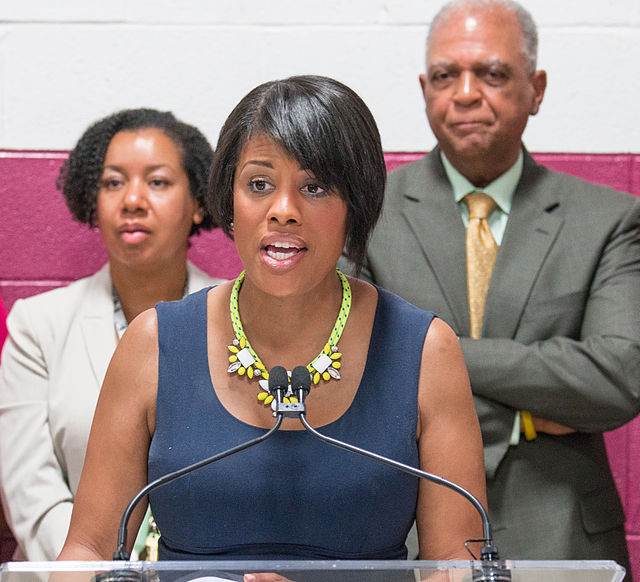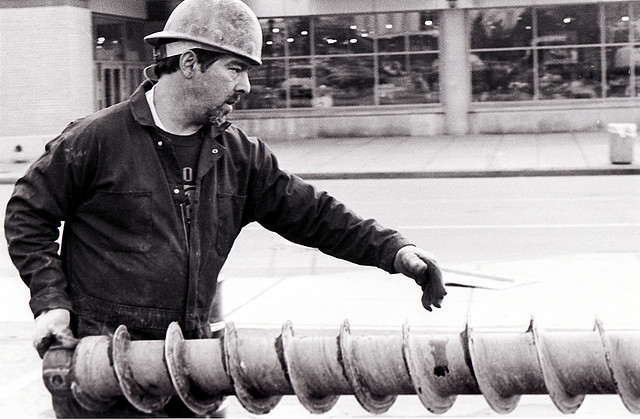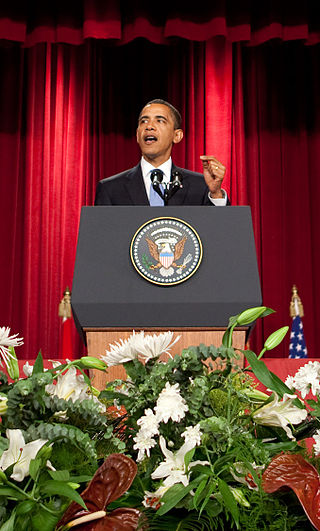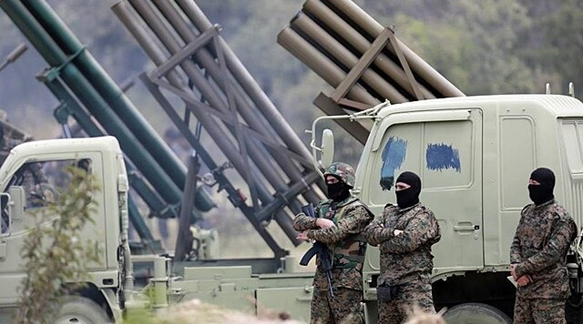Mumia "Obsidian" Ali talks about the experience of the Abandoned – working class American Black men left to fend entirely for themselves.
Last week, Mida analyzed the condition of Black society through the lens of progressive policies and family breakdown • Today, we take a closer look, as Mumia "Obsidian" Ali, life-long blue-collar worker and writer for the aforementioned Abandoned Black Men, tells their story from their own point of view • A trenchant cri de coeur for all of America

[Interviewer's note: all emphases in bold are mine – A.W.]
Please tell us about yourself: where you grew up, what you did for a living, what you do now.
I grew up in Philadelphia, where I was born and raised. I attended public schools, and shortly after graduation entered the world of work by being literally grandfathered into my first job, which was for a giant industrial roofing company. It was the start of 22 years of being on the job, all of them in blue collar work in various fields and settings. My last job was in industrial food service/manufacturing, where I worked on a production line operating various machinery on the first shift, and as a mechanic on the second. I worked an average of 12 hours a day, six days a week, for a decade. I've only had one vacation in my entire working life.
After being critically injured in a workplace accident in 2009 that ended my career, I decided to try my hand at blogging and writing, something I had never done before. I didn't know anything about it, so I just jumped right in, and since then I've co-founded a men's issues blog collective known as Just Four Guys, and more recently joined the editorial team at A Voice For Men and became a regular contributor at Return of Kings. I write about men's issues from a working class Black man's perspective, which I consider to be all but invisible in the larger discourse on these issues.

Baltimore seems to be the great Black dream: the mayor is Black, the Chief of Police is Black and about half the police force (including some of those charged with Freddie Gray's death) are Black. All this under a twice-elected Black President. Yet things are clearly going south. What's going on?
In a word? Class. Eugene Robinson talks about this in a book he wrote a few years back called Disintegration: The Splintering of Black America. In it, he makes the case that as an unintended consequence of the Civil Rights Era, Black America has actually splintered or broken apart into what he argues are four distinct "mini-Black Americas" – which are not only distinct from each other, but are increasingly, to use Charles Murray's title of his excellent book, "coming apart".
The most isolated subgroup here are what Robinson calls The Abandoned – which brings us to Baltimore. These are the lower and underclass Blacks that make up the rank and file Black in Baltimore, while what Robinson refers to as The Mainstream and The Transcendent classes of Blacks makeup the leadership class in Baltimore, but who rarely actually lives in the city itself. They're out in what is referred as "the county" or suburbs, and there has been a low-simmering tension between the Abandoned class and the Mainstream/Transcendent classes of Blacks there and elsewhere throughout Black America for decades. Atlanta is another example with stark class stratification, same with Detroit and Philly.
As Robinson notes in his book, this is the reason why so much noise is made about Racism, because it's one of the very few things left that can rally Blacks en masse. Otherwise, we simply don't have anything with which to brings us all together under one tent, so to speak. The classes of Blacks are too different now. With no sign of going back. The Abandoned, like their fictional counterparts in the hit TV series The Wire, are pretty much left for dead by the rest of (White) America, and much of Black America – and they know it. Which can and does breed A LOT of resentment, anger, and sadness.
The Black talking heads in what I have referred to as the Negrosphere Media HAS to frame what has gone down in Baltimore and what you've tallied up above as another Ferguson, when the facts couldn't be more damning. This is because if we really zero-in on what's really going on in Baltimore and has been for decades, it will get really ugly, really quick – as we've seen over the past few weeks. In a word, the Black leadership class has failed those who have been left behind, often with fictive racial kinship rhetoric for votes and other forms of Black en masse support.

You mentioned in our Twitter conversations that working class Blacks face serious racism and racial discrimination. Could you give me some examples or stories on how that plays out?
Robert Cherry of the National Alliance recently published a report called "Helping Black Men Thrive." In it, he does a masterful job in laying out the facts as to just how much the rank and file Black man has to contend with rank job discrimination. This is the main reason why unemployment numbers for Black men are so very high – often, in the high double-digits – for decades. Often, "education" is brought up as a reason for this, but the fact that illegal aliens are here working in many of those jobs, often with no to little knowledge of English, belies such arguments. Even college educated Black men with no criminal records have been documented in getting work less than their White, lesser educated and criminal-background-having counterparts. All of this is well documented.
The problem is that once again, the Black leadership class has proven themselves to be completely ineffective in addressing this; for example, right here in my hometown of Philly, the skilled trades unions have been both historically White, and, quite racist, to be frank. Despite the fact that we've had three Black mayors and a sizable presence on the city council, it hasn't proven enough to break or even soften up the skilled trades unions to allow more Black men into those jobs. This has been going on for decades: my own dad couldn't get into the skilled trades unions, in fact. Most contractors like my dad were not only locked out of the union jobs, they were also locked out of the more larger lucrative contracts, too. So he and many other Black contractors were relegated to the literal Black Market – doing work for Black folks – which was almost always on the residential level. And that had its share of problems as well, chief among them being that Black folks knew the deal, and exploited it to their advantage.
The media is filled with discussions of fatherless and blame of absentee dads for the violence in Black communities. Is it fair to place the entire onus on the men? Or are mothers (as well as other factors) to blame as well?
Well, I think the video of Ms. Toya Graham being caught live and in action, speaks for itself, does it not? But, for anyone out there who are still unconvinced, there are two really good books you want to checkout: one is called Promises I Can Keep and the other is called Doing The Best I Can. Both are by Kathryn Edin, who interestingly enough, is at Johns Hopkins down in Baltimore. She studies low income Black, Hispanic and even White mothers and fathers, and it is pretty clear as to who runs things in that sector of American life. And it ain't the dads, that's for sure.
As I've said in a recent piece I wrote for AVFM on Ms. Graham herself, Baltimore is botha de facto and de jure Matriarchy – it is ran from the top down by Black women. Look at the results – which are nothing new and was in fact predicted by Daniel Patrick Moynihan back in the mid-60s. Black dads are excoriated for political reasons – we're the guy America loves to hate, even now in the post-9/11 era – and it gets lots of mileage. But the facts on the ground, again, as Ms. Graham, et al, shows us, say something else.

Some scholars point out that many Black youths join criminal gangs to have an experience of family they don't have at home. Aren't there any other, less dangerous alternate families for Black boys and men?
Good question, because I was just discussing this recently on Facebook and it started a firestorm of controversy and debate. The idea of "mentoring" young Black boys, a la Big Brothers (& Big Sisters) is a really popular notion, especially among Black women themselves, and will often highly recommend this to Black men as the major way they can get involved in community work and so forth.
While there are definitely great benefits to be had there, the problem I have with it is that it doesn't address one of the main problems – which is dysgenic breeding. Simply put, a lot of Black women are mating with the wrong kinds of Black men in the first place, which brings about the need for mentoring in the first place. Worse, if indeed there were a bunch of Black men moving in to mentor said young Black boys, what would be the incentive on the part of their mothers and other Black women to change their mating behaviors and choices?
So, to answer your question, there are alternatives; but for me at least, there is a real question as to whether such alternatives actually do more harm than good. I mean, if you just look at the numbers, out of wedlock births continue to rise in Black America, most especially among the working and lower classes. (US Census figures indicate that the Black marital rate is something like 27% – hardly enough to turn the ship around) We need a brutally honest discussion about these things, because the simple truth of the matter is that one of the biggest reasons as to why so many Black men are so disengaged in Black American life at nearly all levels, is due to the fact that they don't have any stake in what's going on; when a man's own kids are on the line, he'll fight like the devil for them.
Mentoring is a noble pursuit, but it will never take the place of actual biological dads. In order for that to happen, Black men have to feel like they have some skin in the game, and that the women they're going to be working and providing for, ARE HIS – and that can't happen when you're fostering or mentoring some other guy's kid, or when your woman has one or two baby daddies prior to you. Call that sexist, call that whatever you want. But I call it reality. And it's time Black America had a hefty draught of that.
If I could guarantee you would be read by all the policy makers, what suggestions would you make to the people in charge to improve things?
That's an easy question that doesn't really require an answer, but I'll humor your readers: said leaders already know what to do. They just don't have the will or incentives, to do it. Neither party wants to actually put Black men to work en masse. Neither party wants to address the grinding racism that drives so many Black men into poverty. And while Obama has repeatedly wagged his finger at Black men for falling down on the job with their kids, notice that he won't dare say anything about Black moms, even when they're caught on national TV whooping the heck out of one of her own. The Black leadership class is utterly impotent to do anything about any of this. I say that we have to clean house, and bring in leaders who will actually, you know, lead. We need a lot more Lee Kuan Yews, and a lot fewer Bill Clintons.
To receive updates on new articles in English, join Mida on Facebook or Twitter or join our mailing list.




